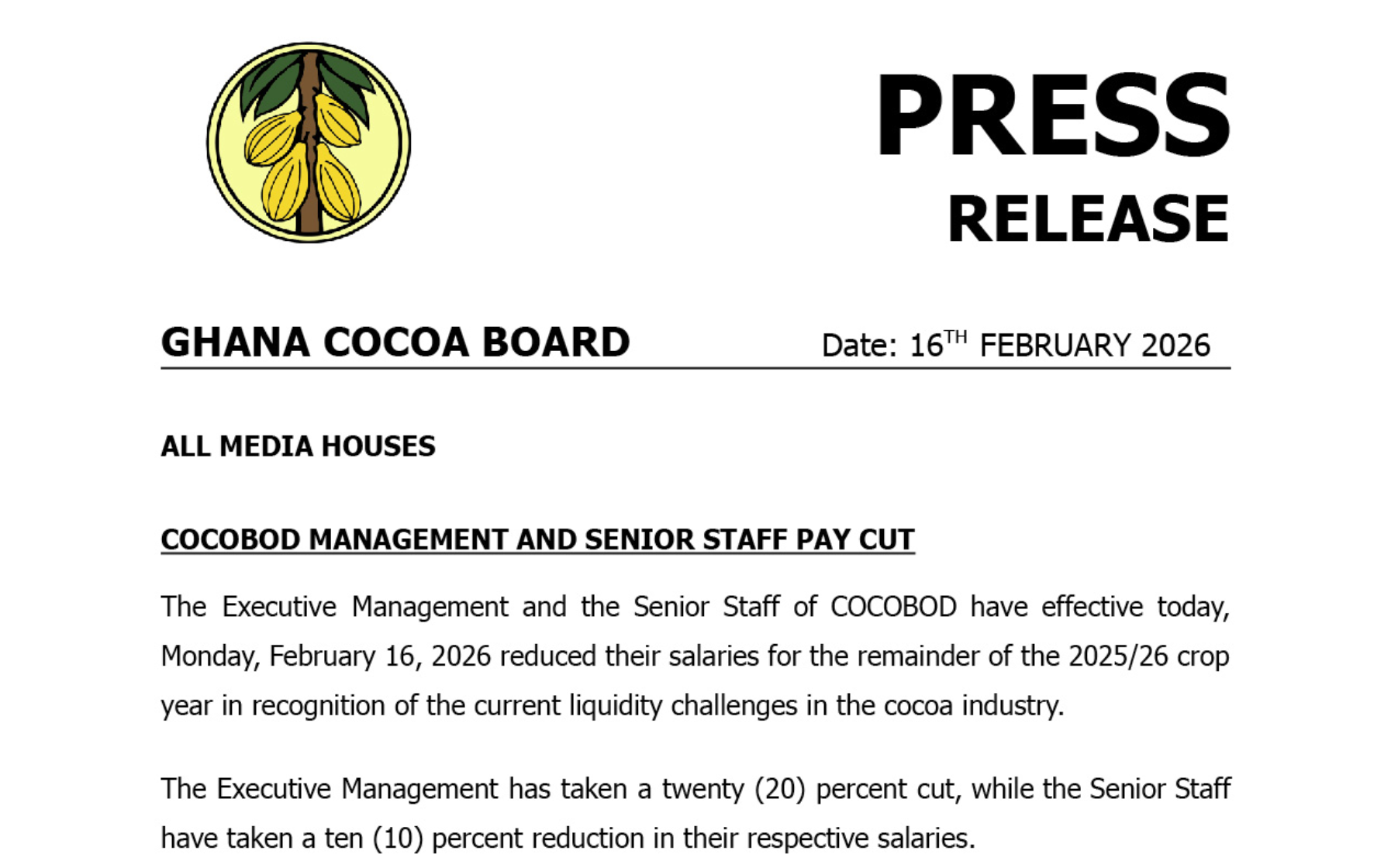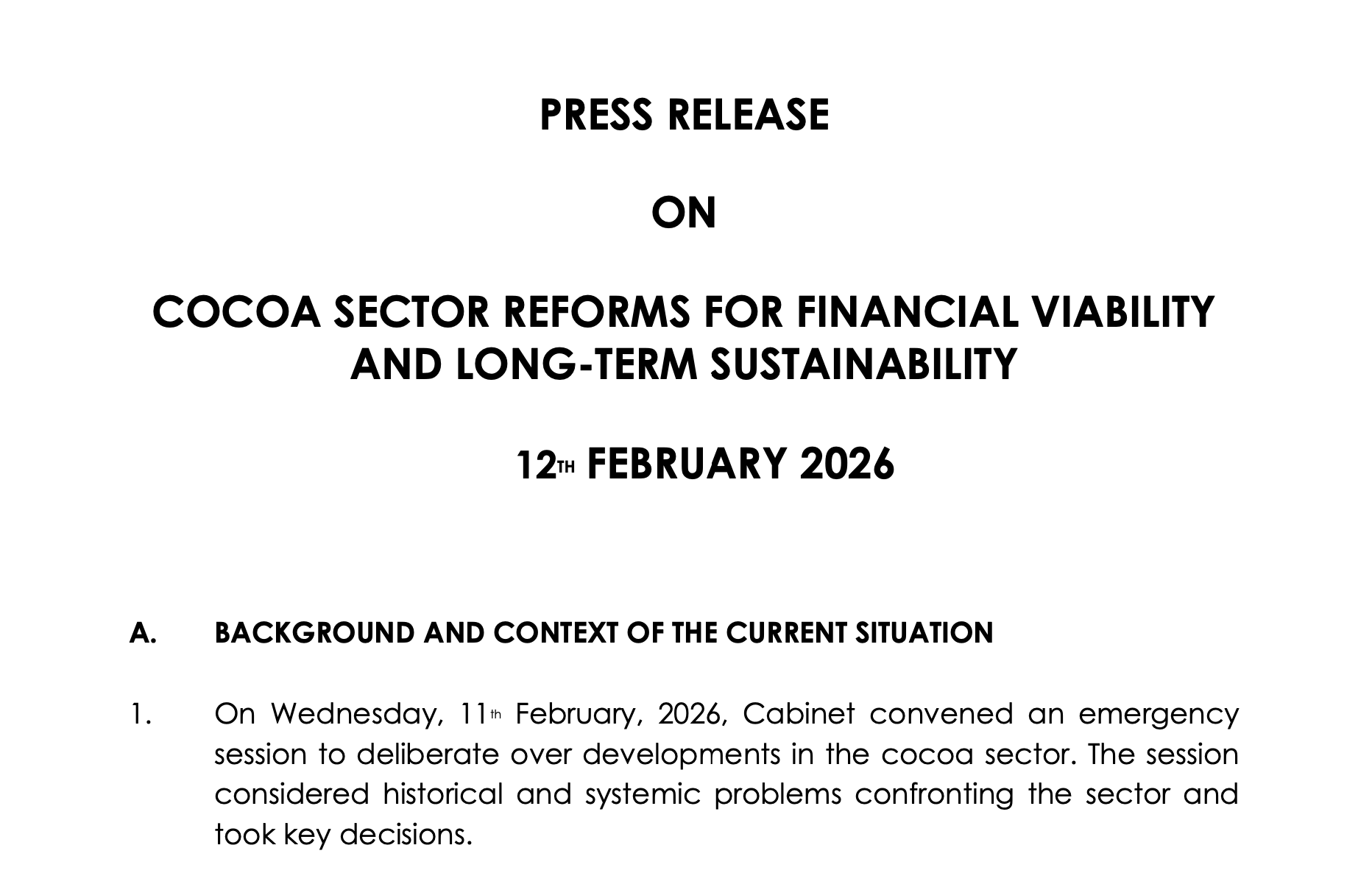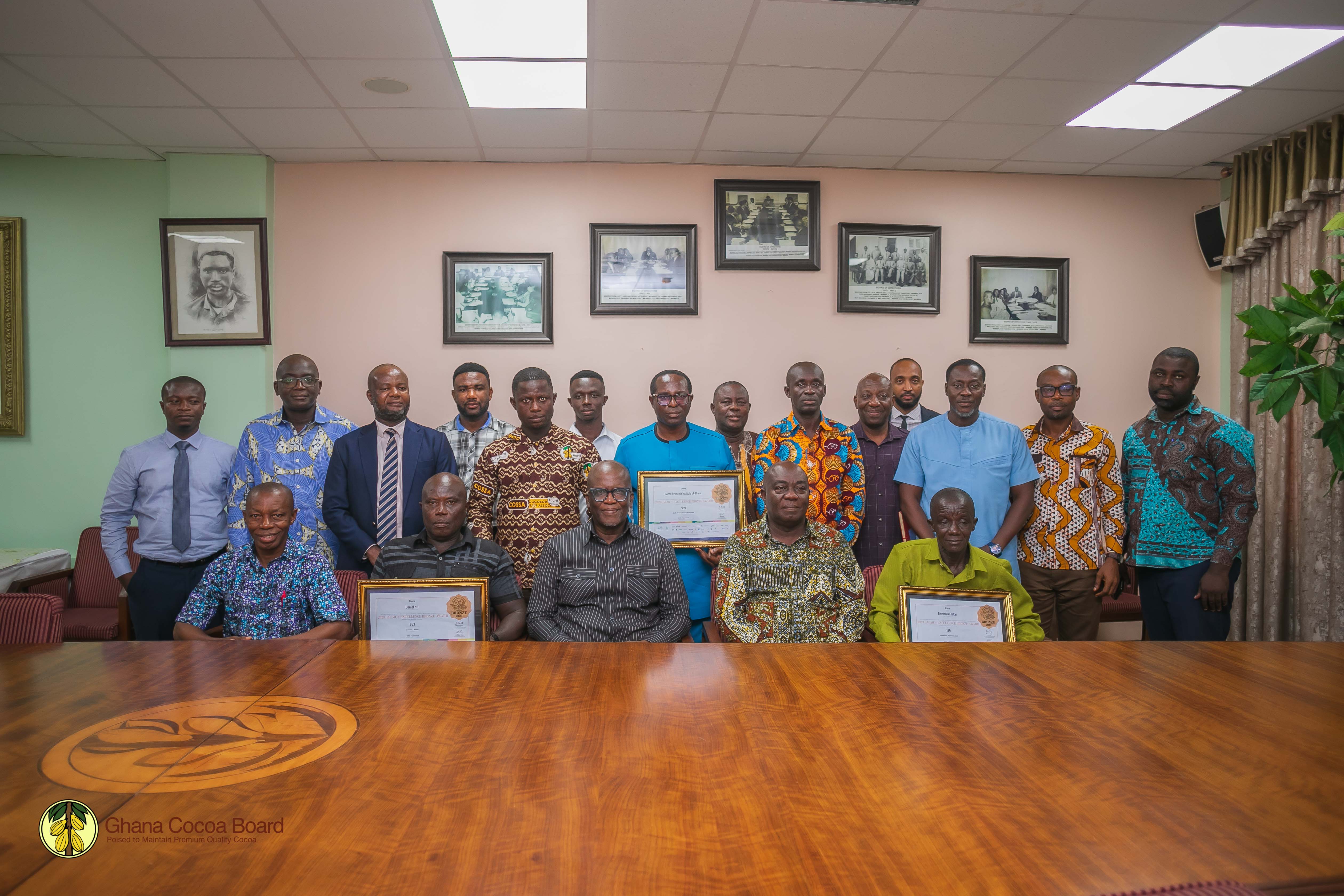COCOA PRODUCE PRICE IN AN ERA OF CEDI APPRECIATION
Date: 30th June 2025
…A REALITY CHECK FOR FARMERS AND INDUSTRY STAKEHOLDERS
As Ghana enters a new phase of macroeconomic recovery, the recent strength of the Ghana Cedi has become a focal point of national discourse. Celebrated by economists, traders, and the business community as a major achievement in the first half of the year, the appreciating local currency is broadly viewed as a sign of restored confidence in the economy. However, while this positive trend is welcomed, it carries nuanced implications, particularly for sectors like cocoa, where pricing is heavily influenced by global market dynamics.
Speaking on Accra-based TV3, the Chief Executive of Ghana Cocoa Board (COCOBOD), Dr. Ransford Abbey, highlighted the complex relationship between currency appreciation and cocoa pricing. In this article, we explore the impact of this complex relationship on Ghana’s farm gate cocoa prices, as industry players prepare to open the 2025/26 Crop Season.
Understanding the Pricing Framework
Cocoa, Ghana’s major cash crop, is traded on the global market in US dollars. For the 2024/2025 Cocoa Season, COCOBOD pegged the producer price at USD3,100 per tonne, based on an exchange rate of GHS16.00 to the dollar. This resulted in a producer price of GHS49,600 per tonne, or GHS3,100 per 64kg bag.
However, with the Cedi now trading around GHS 10.29 to the dollar ( as of 27th May), the cedi-equivalent of USD3,100 has dropped significantly to approximately GHS 31,899 per tonne, or GHS1,994 per bag. Yet COCOBOD has maintained the current producer price of GHS3,100 per bag, effectively absorbing the GHS 1,106 difference per bag - or GHS17,701 per tonne - through internal subsidies. This is a deliberate intervention to cushion farmers, demonstrating COCOBOD’s commitment to farmer welfare, even in the face of shifting economic fundamentals.
Looking Ahead to the 2025/2026 Crop Season
As Ghana prepares to open the 2025/2026 Cocoa Season, expectations among cocoa farmers are understandably high. International cocoa prices have surged in recent months, and stakeholders anticipate a corresponding rise in the producer price, but the reality is more complex.
EVEN IF the achieved FoB for the year under review permits the Producer Price Review Committee (PPRC) to raise farmers’ share of the dollar-denominated producer price - for instance, from the current USD3,100 to USD 4,500 (about 45.16% increase) per tonne at an exchange rate of GHS11.00, the Ghana Cedi equivalent would be about GHS 49,500 per tonne or GHS 3,094 per bag. This would still be lower than the current GHS3,100 per bag price being paid, which has been sustained through subsidies.
This highlights a key point: the appreciation of the cedi dampens the cedi-equivalent value of international cocoa prices, even when those prices rise.
Balancing Expectations with Sustainability
Maintaining elevated prices in Ghana Cedi terms through subsidies may not be financially sustainable in the long run. While the COCOBOD remains committed to supporting farmers, this situation calls for a delicate balancing act, protecting farmer incomes while ensuring the long-term financial health of the cocoa sector.
While the expectations of farmers, especially their hope for better times, are worth appreciating, there is also a critical need to remain mindful of the broader economic context and the need to sustain the industry.
Strategic Interventions for Farmer Support
To help farmers maximise yields and mitigate the impact of market volatility, COCOBOD is introducing a farmer-centred approach to its flagship Cocoa Rehabilitation Programme. The plan is to integrate farmers more directly into the rehabilitation process, from land preparation to handover, ensuring ownership, efficiency, and accountability.
Additionally, there are plans to enhance the distribution of fertilisers and agrochemicals, making them more accessible to farmers, and to implement policies that attract our youth into the cocoa business.
A Call for Unity, Trust, and Shared Progress
As Ghana’s cocoa industry traverses an evolving economic landscape, marked by currency appreciation and shifting global market dynamics, it is more important now than ever for all stakeholders, especially our cherished cocoa farmers, to approach this period with a clear understanding and a unified front.
For COCOBOD, the current pricing scenario is not merely about numbers; it is a reflection of deeper issues of fairness, sustainability, and shared responsibility. While international cocoa prices have remained relatively high, the strong performance of the Ghana Cedi has moderated their impact in local currency terms. Yet COCOBOD has not relented. By absorbing the exchange rate gap and maintaining the current farmgate price, the Board has demonstrated its commitment to protecting farmer incomes despite economic pressures.
This is not an isolated gesture, but part of a broader, farmer-centred vision. From reforms in the Cocoa Rehabilitation Programme to improved distribution of agro-inputs and other productivity enhancement initiatives, COCOBOD is actively working to empower farmers, strengthen communities, and build a sustainable cocoa economy.
We therefore urge all stakeholders - farmers, traditional leaders, licensed buying companies, input suppliers, policymakers, and partners- to remain calm, informed, and engaged. Let us manage expectations realistically while trusting in the strategic steps being taken to improve the sector.
Indeed, Ghana’s cocoa industry has endured and thrived because of the resilience, dedication, and partnership between farmers and the institutions that support them. As we face the future, let us continue to work hand in hand with openness, mutual trust, and a shared commitment to progress.
Together, we can build a resilient and competitive cocoa sector, one that rewards hard work, ensures equity, and secures the future of Ghana’s position as a global leader in premium quality cocoa production. Let us press forward, united in purpose and hope, towards a stronger, fairer, and more prosperous cocoa industry for generations to come.
Benjamin T. Larweh & David A. Oduro
Public Affairs Department, COCOBOD
Other News / Articles you might be interested in.

COCOBOD MANAGEMENT AND SENIOR STAFF PAY CUT
The Executive Management and the Senior Staff of COCOBOD have, effective today, Monday, ...
Read More
PRESS RELEASE ON COCOA SECTOR REFORMS FOR FINANCIAL VIABILITY AND LONG-TERM SUSTAINABILITY
A. BACKGROUND AND CONTEXT OF THE CURRENT SITUATION 1. On Wednesday, 11th February, 2026, ...
Read More
COCOBOD HONOURS GHANAIAN COCOA FARMERS FOR EXCELLENCE AT INTERNATIONAL COCOA AWARDS
Management of Ghana Cocoa Board (COCOBOD) has honoured the winners of the 2023 International ...
Read More